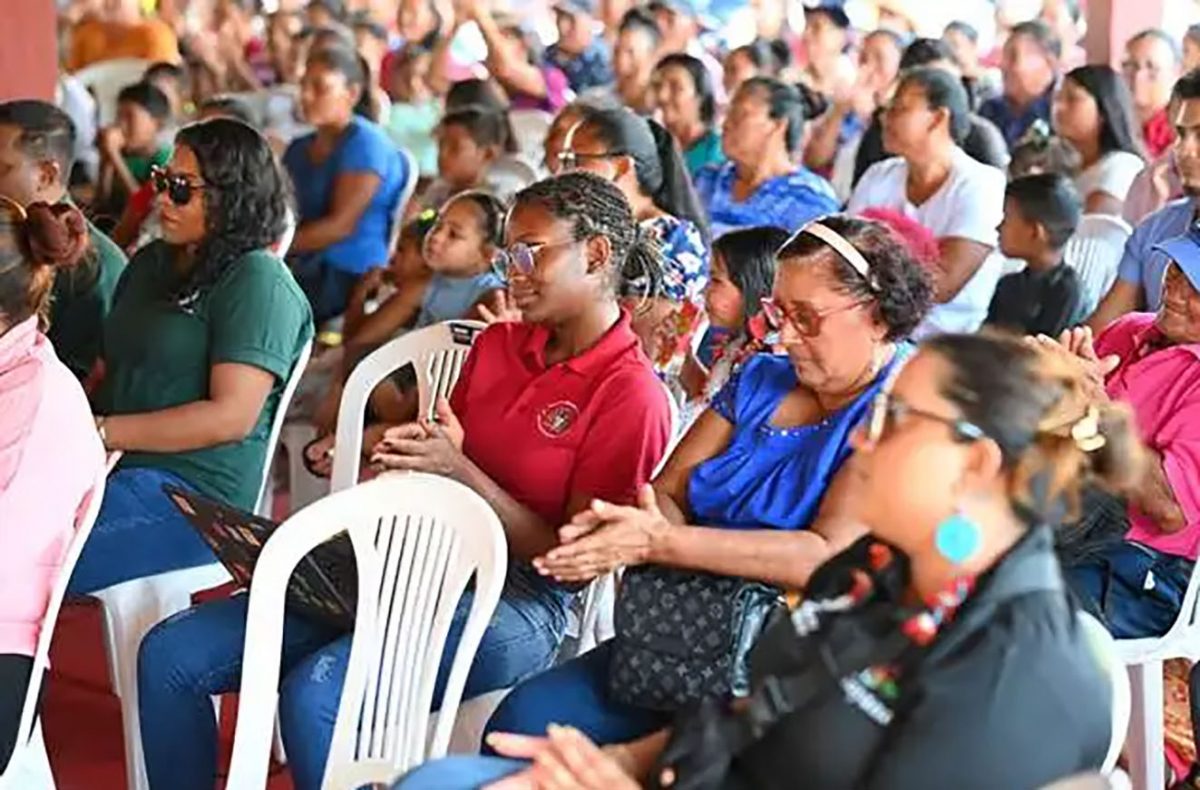The Department of Public Information (DPI) yesterday reported that the government is set to spend over $1 billion in the Rupununi region, exceeding its 2024 budget allocation.
This was announced by President Irfaan Ali at an outreach in the village of Nappi, situated in Central Rupununi yesterday. He was accompanied by Minister of Natural Resources, Vickram Bharrat; Minister of Education, Priya Manickchand, and other officials.
At the outreach, the President emphasised that these additional investments reflect the government’s commitment and support for the people, aiming to empower them to contribute to the development of themselves, their communities, and the country as a whole.
According to the release, just three days ago, approximately 500,000 pounds of cassava was delivered to communities in the Deep South Rupununi, with Ali disclosing that an additional 500,000 pounds, valued at $20 million, will soon be distributed to Nappi and eight surrounding villages. In addition, he unveiled plans to procure and install a cassava mill in Nappi at a cost of $20 million.
“To support you in these villages and to ensure that you have sustainability, excess production, and value-added, without you asking, we are going to install a cassava mill and we will start it within 14 days right here to service these communities around here,” the president told the residents gathered at the village benab.
The supply of cassava to the Deep South would confirm ongoing food security issues in Region Nine.
Last September, Toshao Charles Simon from Awarewaunau, Deep South Rupununi, Region 9 told Stabroek News that floods earlier in the year had destroyed most of the crops in his village. After the floods receded, farmers replanted the root crop but were experiencing the El Nino weather system, and the excessive dryness was hastening the rotting of the crop. Simon also attributed the cassava scarcity to foraging wildlife, a possible consequence of El Nino’s larger impact deeper in the rainforest. Simon said then that the food security situation in his village was critical. Because of low cassava production, cassava bread and farine production had also been significantly scaled back.
Toshao Michael Williams of Annai, North Rupununi, Region Nine told Stabroek News in September last year that after the floods, cassava crops were replanted but these would not be available for another three months. Williams told Stabroek News that the shortage of cassava had also sent the prices in Annai for farine, cassava bread and casareep skyrocketing. Farine, where available, is consumed by families but is hardly being bought due to cost.
Yesterday, DPI said that Nappi also benefitted from solar photovoltaic household systems. Each system comprises a solar panel, two lights, a fan, and a power box.
President Ali reiterated his administration’s commitment to prioritising the needs of the people in its programmes and policies and assured of interventions specifically targeting Amerindian villages across the country. “Nothing is wrong with wanting more… we can aspire to be on the same level as those on the coastland. And this government will make the investment to ensure that you are at that same level,” the Head of State said.
And to further support villages, he announced government’s plans to establish service hubs, including a
‘Buyers Hub’ where excess fruits available in the villages will be procured and preserved for reliable marketing. This initiative will be supported by the Men on Mission (MoM).
According to the DPI, the residents welcomed these announcements and expressed their gratitude for the anticipated employment opportunities these programmes will generate.






